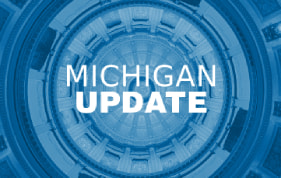A recent issue brief, Center for Medicare and Medicaid Innovation: Recommendations for Future Direction, revisits questions raised in a previous HMA report and offers potential answers to guide progress and changes for demonstrations within the Centers for Medicare & Medicaid Services’ (CMS) Center for Medicare and Medicaid Innovation (CMMI) or the Innovation Center.
The brief examines options for how CMMI could refine their approach to testing ideas for improving the Medicare program. HMA colleagues Jennifer Podulka, Yamini Narayan, and Lynea Holmes wrote the brief which was supported by Arnold Ventures.
HMA’s earlier brief examined the progress the Innovation Center has made in learning from Medicare-focused models during its first decade and raised questions to guide policymakers as they plan for the next phase of the Innovation Center’s work. In the new report, the team returns to those questions and offers potential answers.
The brief outlines seven pairs of competing goals and offers four recommendations that may, in part, help to balance these competing goals, as they are designed to increase the transparency of Innovation Center efforts and improve the likelihood that more models succeed in decreasing spending or improving quality. The recommendations include:
- The Department of Health and Human Services (HHS) should establish a National Healthcare Transformation Strategy
- CMMI should articulate a vision for how different models work together
- CMMI should tailor models to test ideas that address the largest areas of spending growth and key areas of quality concerns, including
- Include Part D in models
- Include Part C in models
- Promote primary care as a counterbalance to excessive low-value care
- Address social determinants of health and other drivers of quality and access disparities
- Congress and HHS should revisit the Physician-Focused Payment Model Technical Advisory Committee (PTAC)






